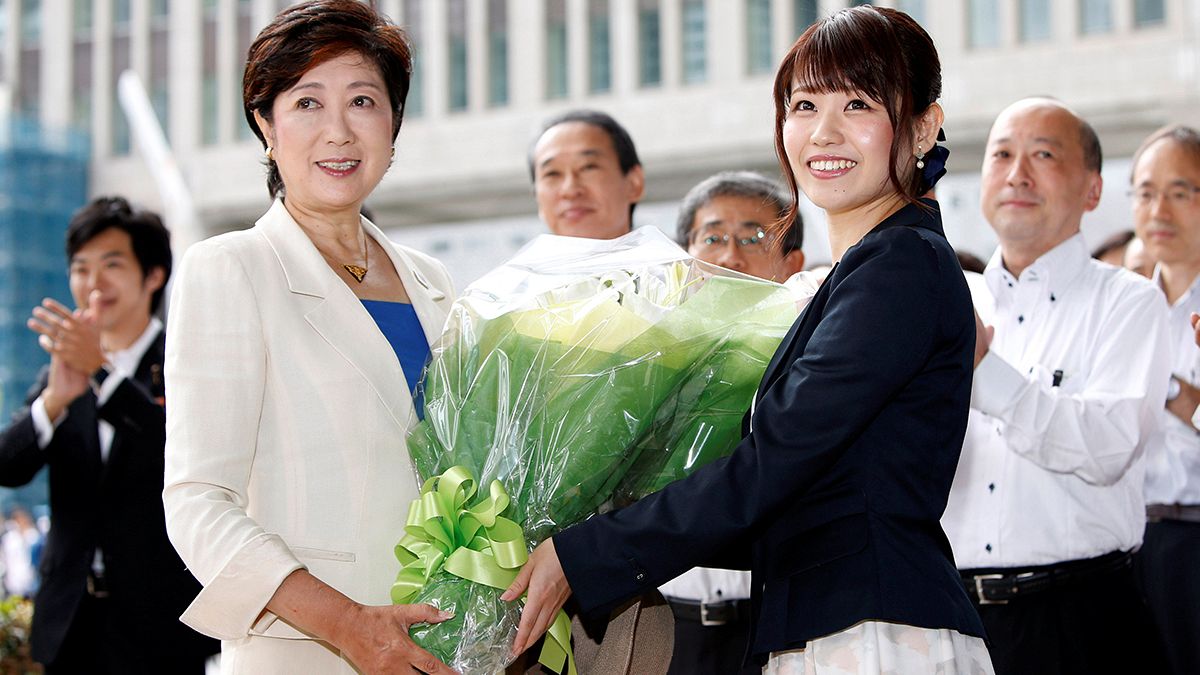Last Sunday Koike Yuriko was elected as the first woman governor of Tokyo.
Last Sunday Koike Yuriko was elected as the first woman governor of Tokyo. But her historic moment was marred by sexist remarks from other politicians. It comes as no surprise that Japan sits among the lower third in the 2015 Global Gender Gap Report, ranking 101 out of the 145 surveyed countries.
Looking in detail at the breakdown of the statistics, the two areas in which Japan does not perform too badly is healthcare and education. However, with regards to economic participation and political empowerment, Japan ranks 106th and 104th, respectively. Currently, only 9.5% of the members in the lower house are female.
It is precisely because of women’s underrepresentation in politics that makes Koike’s victory became a success story. Nonetheless, during the campaign period, Koike was on the receiving end of a negative backlash that featured strong sexist language.
The former governor of Tokyo, Shintaro Ishihara, discouraged the voters by saying “[w]e cannot leave Tokyo to a woman with too much make-up.” The Social Democratic Party leader, Mizuho Fukushima, criticised Koike’s gender nonconforming behaviour. She commented that it is meaningless to vote for Koike, “when she is dressed as a woman but inside is a hawkish man”.
There are several historical, cultural and religious reasons for the gender gap in Japan. Michael Hoffman explains the history of gender gap in The Japan Times.
Warriors despised [women’s] weakness; Buddhism dismissed them as polluted beings incapable of attaining Enlightenment; Confucianism stressed the obedience a wife owed her husband and a mother her son. The modernising regime of the Meiji Era (1868-1912) assigned woman her post-Confucian place — no corporate warrior or captain of burgeoning industry for her. She should instead aspire to be a “good wife and a wise mother” (“ryōsai kenbō“); it was written into the Meiji Civil Code, which remained in effect until 1947.
Given the long history of the gender gap, it may not come as a surprise that the Japanese language has two different sets of speech patterns prescribed for women and men. Women’s language (jyoseigo) can be characterised with a gentle tone that is often more deferential. On the other hand, men’s language (danseigo) is more assertive and vulgar. Because of the differences in speech patterns, individuals using women’s language may have a harder time defending their opinion, for example in a work-related conflict.
Going back a few decades, it was virtually unknown for a woman to abandon her family obligations and to start a career. Today this is no longer the case as many decide to prioritise pursuing their career over establishing a family.
Nonetheless, men still dominate the executive positions in Japan. The former prime minister, Koizumi Junichiro proposed a target to increase the ratio of women in executive positions to 30% by 2020.
However, Steve Mollman comments in Quartz, that the current prime minister Shinzo Abe reduced this to “a more realistic” 7%.
It is important to mention that the overwhelming majority of Japanese society thinks of gender in binary terms. In this way, transgender people may encounter more difficulties when there is a clear-cut line in the gender norms.
Last April marked a significant milestone for the LGBTQ community when the Japanese government encouraged educational institutions to help students in the process of gender transitioning. As a response of the call, a number of schools allowed their students to decide which bathroom and which locker room to use.
While these steps may seem small from a Western perspective, it shows that Japan is progressing towards closing the gender gap and creating a more accepting society.
